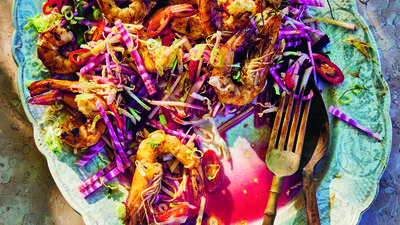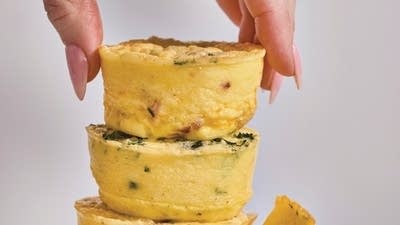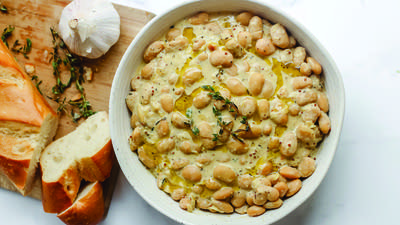
A little food science takes you a long way down the road to dishes that always shine. Chefs understand this, which is why many well-known ones work with food scientist Harold McGee. He’s always digging for new answers and never accepting the status quo. McGee, author of Keys to Good Cooking: A Guide to Making the Best of Foods and Recipes, explains why thawing small cuts of meat in 100-degree water is perfectly safe.
Lynne Rossetto Kasper: You did an article about thawing meat in hot water. All the experts have always said never in a million years should you ever thaw meat in hot water; you always do it in cold water. So what’s the deal?
 Harold McGee
Harold McGee
Harold McGee: Well, that’s exactly it. In fact, most of the time, what people told you to do was thaw things in the refrigerator, which in a way is the worst of all possible worlds for the cook. Because that might be the safest way to do something, but it takes forever -- a 1-inch thick steak can take 24 hours to thaw out in a refrigerator.
So the next best thing is to put it in cold water -- ice water. Water is just a much better transmitter of heat than air is; when you put something in water, it will transfer heat in or out of the food much more quickly. You can thaw a piece of beef in cold water. It might take 24 hours in the fridge, but it would take maybe 1 hour, 2 hours in cold water. Still, that is quite a while.
The thing that I think most authorities were worried about was people taking food out of the fridge, putting it on the countertop, and letting it warm up at room temperature. That takes a long time and isn’t safe because bacteria can grow on the surface of the food while the inside is still thawing out.
Recently two different food science labs actually did a controlled study to see what would happen when you thawed meat at different temperatures in water baths. What they discovered was that a 1-inch thick steak will thaw in about 20 minutes in room-temperature water and more like 10 or 11 minutes in water that is 100 degrees or so (like a hot summer day). It turns out that if you do the math, which these labs did, those thawing times are so short that they don’t give bacteria a chance to start growing and cause any trouble. So it turns out that thawing in 100-degree water is perfectly safe.
LRK: If we are going to do this at home, what would be the exact method we should use?
 Keys to Good Cooking
Keys to Good Cooking
HMG: First of all, the method should only be used for relatively small cuts of meat like steaks, chops, chicken breasts, chicken legs and things like that. Not whole birds, not whole roasts, because even in hot water, those will still take hours to thaw all the way to the center. So it should really only be for the smaller cuts of meat and fish.
What you want to do is to start the water hotter, because the second study that I saw actually tried it in 125- or 130-degree water, and that works well and even faster. So what I like to do is just get the water hot from the tap. Usually, in my house, that's around 120 degrees. Then have a lot of water compared to the weight of the meat -- a big stockpot full of water. Put the meat in and immerse it. Put something on it like a saucer or a slotted spoon, just to keep it submerged. Every once in awhile, come over and give it a stir -- you will get hot and cold spots if the water just sits quietly by itself, and the thawing won’t be as quick and efficient as it would be otherwise. Then in 15 minutes, depending on the thickness of the meat, it should be ready to go.
LRK: What about packaging? Because if I take something right out of the freezer, sometimes I wrap it first in plastic wrap, then I wrap it again. Should I leave it in that wrapping or should I transfer it into something different for the thawing?
HMG: The thawing is slowed down by anything that is between the meat and the water. It will be most efficient to thaw if the meat is simply in a single-thickness piece of plastic film. If you have packaged it yourself and swaddled it in layers and layers, take off the swaddling and just put it into a Ziploc bag. That way, the heat will be transferred from the water into the meat much more rapidly.
Before you go...
Each week, The Splendid Table brings you stories that expand your world view, inspire you to try something new, and show how food connects us all. We rely on your generous support. For as little as $5 a month, you can have a lasting impact on The Splendid Table. And, when you donate, you’ll join a community of like-minded individuals who love good food, good conversation, and kitchen companionship. Show your love for The Splendid Table with a gift today.
Thank you for your support.
Donate today for as little as $5.00 a month. Your gift only takes a few minutes and has a lasting impact on The Splendid Table and you'll be welcomed into The Splendid Table Co-op.




